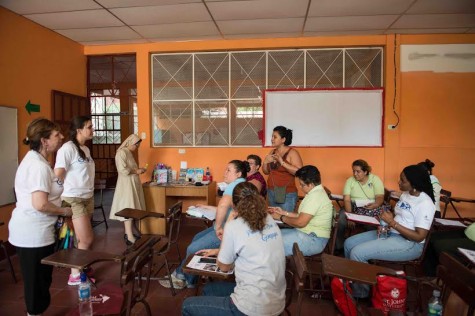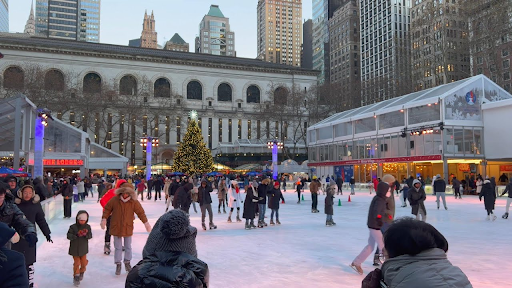
Sitting in a classroom, it is unusual and unexpected to have the impact to make a
difference in the world. An international business course at the Tobin College of Business
does just that, though.
The lecture, provided by Dr. Linda Sama, motivates and encourages students to be the
change they wish to see across the world and, in this case, act as social entrepreneurs.
The Global Loan Opportunities for Budding Entrepreneurs, or the ‘GLOBE’ program,
develops plans on a weekly basis to enable those living in impoverished conditions to
achieve their dreams.
Catherine Sims, a 2014 alumnus, claims her experience with the program to be a
transformative one.
The program inspired her to become a social entrepreneur, she said.
“[GLOBE] forced me to think outside of the box and work with people from different
backgrounds to come up with solutions,” Sims said.
The program was founded to help these types of people. Most of the loan applicants are
women because they have problems receiving funding opportunities, Falligan said.
GLOBE addresses the critical benefits of microfinancing in the world of microfinance.
Michael Falligan, who manages the Finance, Budgets and Risk Assessment team, explains
the important details of microfinance.
“The [practice] of microfinance is to provide opportunities and loans to people who can’t
get them from a regular bank,” Falligan said.
GLOBE has adpoted this practice of microfinance. The student-managed program
provides financial services to the international community. Kenya, the Democratic Republic
of Congo, Kenya, Vietnam and Nicaragua are frequent lending countries for GLOBE.
“We go to Nicaragua each year to visit with the area and see if there are any more
resources we can provide,” Falligan said.
GLOBE visits these countries and provides workshops for entrepreneurs who are looking
for more information on how they could possibly start up their own business, Falligan said.
The majority of GLOBE’s recent loan requests came from Nicaragua since they visited the
country in May.
“The past few years we’ve visited Nicaragua but we try to go to every country that we do
[business with],” Falligan said.
The language barrier is a common issue when visiting these countries, so the foreign
language department helps translate those loans. Falligan credited Daniella Groezinger from
the Spanish department for translating all 13 of the Nicaragua loan requests.
Some of the more recent loan requests that GLOBE has received came from Vietnam;
four loan requests in total. According to Falligan, his team had to look for outside sources
and found alumni of the program who were Vietnamese.
GLOBE partners with the Daughters of Charity, a Vincentian organization dedicated to
serving to the poor from all parts of the world.
The Daughters of Charity provide personal relationships with the aspiring entrepreurs
According to Falligan, they scout and contact the entrepreneurs’ initial requests and send
the worthy candidates to the GLOBE program.
“The Daughters of Charity are in the entrepreneurs’ area and they are like the community
outreach for the people in the area,” Falligan said. “They know these people personally and
can give solid recommendations.”
Falligan said the loans have an 85% return and defaults on the loans rarely occur.
GLOBE has provided loans to many aspiring entrepreneurs for purposes such as starting
a food truck or fixing a house.
“We approve them based on their potential to grow as a wbusinessperson and give them a
chance,” Falligan said.
GLOBE evaluates each request to understand what the loan will be going towards. They
have provided nearly 50 loans in the past five years.
“For my team, we can’t just plug numbers in a computer, we have to look at each
applicant, and see what they’re going through at the time,” Falligan said.
GLOBE gives people an opportunity to run their own businesses in the hopes of advancing
out of the confines in which poverty traps them with the extra financial assistance provided
for them.
For students like Sims, though, GLOBE provides an eye-opening experience that
acknowledges them of the povety in the global community, and that they can fix it.
“[GLOBE] changes us in a way that makes us more acutely aware not just of the problems
but the fact that we have the power to do something about it,” Sims said.







